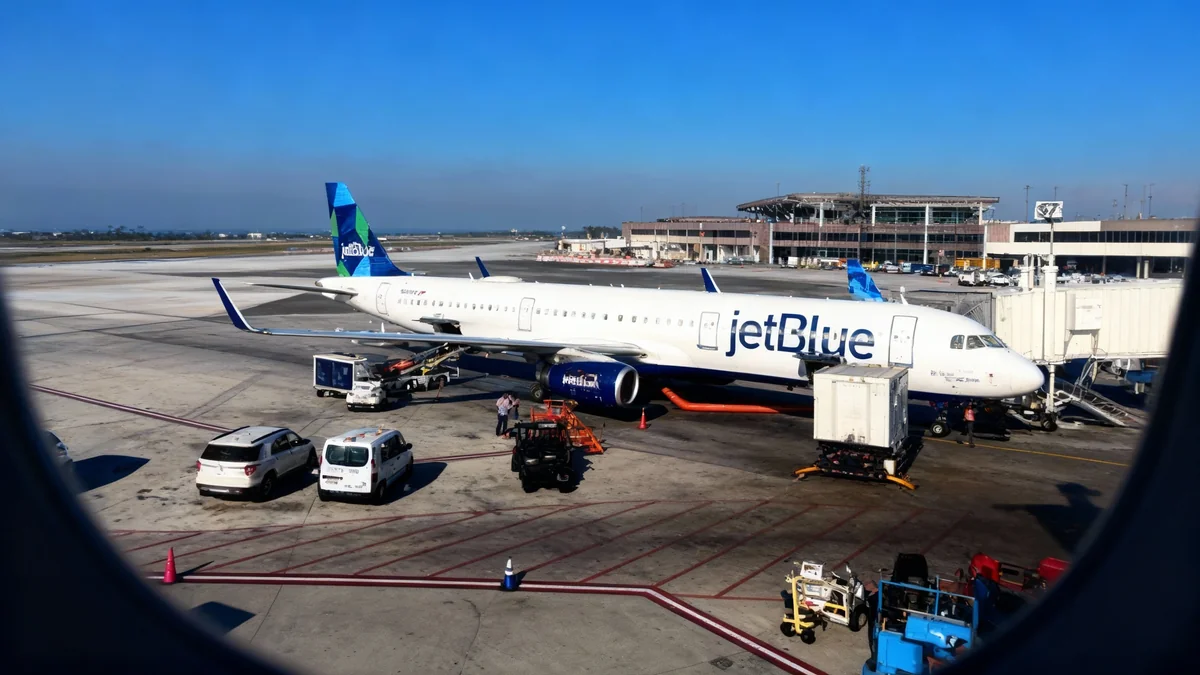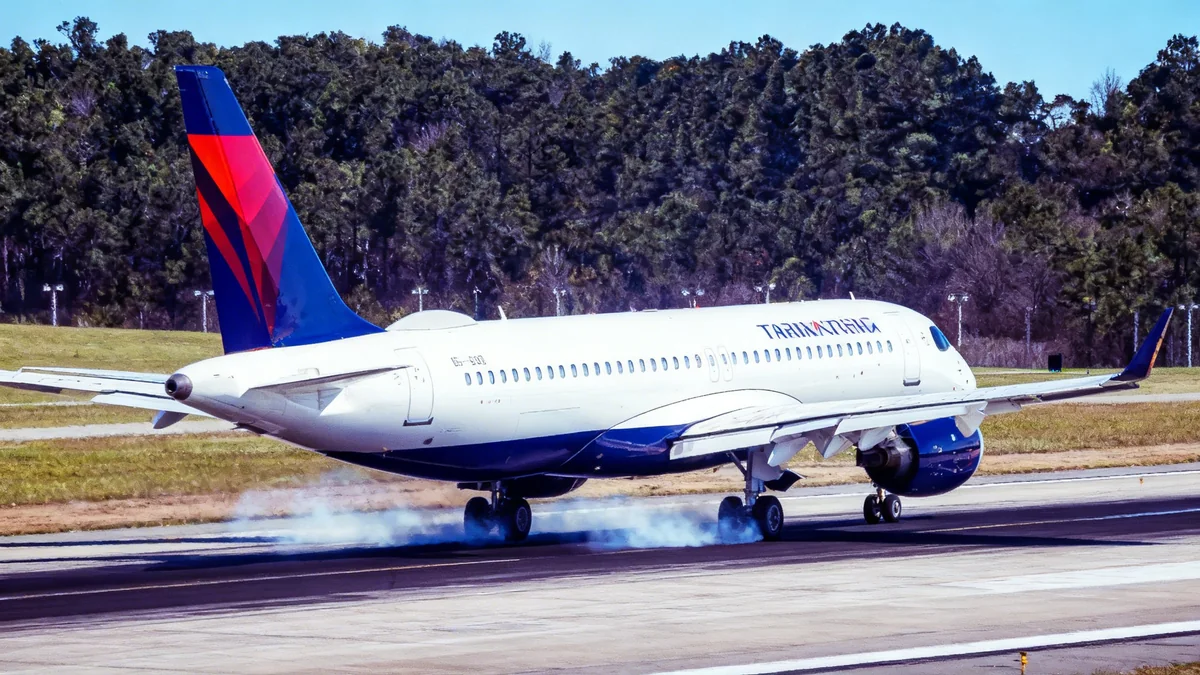JetBlue Airways is at a critical juncture, facing a future that analysts believe will likely lead to an acquisition rather than continued independence. This assessment comes amidst an evolving U.S. airline landscape where scale and robust loyalty programs are becoming increasingly vital for profitability. The airline's current financial position and its valuable assets, particularly at New York's JFK Airport, make it an attractive target for larger carriers.
Key Takeaways
- JetBlue is more likely to be acquired than file for Chapter 11 bankruptcy.
- Potential acquirers include United Airlines and Alaska Airlines.
- Domestic market share is a key regulatory consideration for mergers.
- JetBlue's presence at JFK is a valuable asset.
The Shifting Airline Landscape
The U.S. airline industry has seen significant changes. Major carriers increasingly rely on their loyalty programs for a substantial portion of their profits. This trend makes it challenging for smaller airlines to compete effectively without the necessary scale.
JetBlue, while not an ultra-low-cost carrier, struggles with profitability. However, it possesses key assets, including highly sought-after slots at New York's John F. Kennedy International Airport (JFK). This unique positioning places JetBlue in a strategic spot for potential consolidation.
Airline Profitability Shift
Major U.S. airlines now earn a significant percentage of their profits from loyalty programs, emphasizing the need for scale.
Analyst Predicts Acquisition Over Bankruptcy
Jamie Baker, a respected analyst at JPMorgan, has highlighted the potential for JetBlue to be acquired. He suggests that investors should monitor ongoing merger and acquisition (M&A) developments in the rail industry, which could signal a new phase of consolidation across transportation sectors.
Baker's team believes an acquisition for JetBlue is more probable than a Chapter 11 bankruptcy filing. This perspective stems from JetBlue's valuable assets and the current market dynamics favoring larger entities.
"To summarize, we think there could be another round of airline consolidation under the current administration (or the next one, perhaps) depending on the outcome in the rail space."
United's Interest and Market Share Dynamics
United Airlines has already formed a partnership with JetBlue, which is slowly expanding. The long-term goal for United includes securing slots at JFK, possibly by 2027. While United's CEO, Scott Kirby, has often dismissed acquisition prospects, the strategic value of JetBlue's JFK presence is undeniable.
A merger between JetBlue and United would result in a combined domestic market share comparable to American Airlines or Delta Air Lines, at approximately 16%. This figure is crucial for regulatory bodies assessing potential anti-competitive impacts.
Rail Industry Precedent
Analysts are watching rail M&A, where two major players with over 20% market share each, Norfolk Southern and Union Pacific, are considering combining. This could lead to a single entity controlling up to 45% of the market, potentially setting a precedent for other sectors like aviation.
Other Potential Suitors and Regulatory Hurdles
Beyond United, other airlines could be interested in JetBlue. An alliance with Alaska Airlines would create a domestic market share of only 7%. A merger with Southwest Airlines, however, would lead to a 22% domestic market share. These figures highlight the varying regulatory challenges each potential merger would face.
Regulatory approval remains a significant hurdle. The government's stance on consolidation, particularly regarding its impact on competition and consumer choice, will play a decisive role. Historically, administrations have shown a mixed approach to airline mergers, often scrutinizing deals that reduce competition.
- JetBlue + United: ~16% domestic market share
- JetBlue + Alaska: ~7% domestic market share
- JetBlue + Southwest: ~22% domestic market share
The New York Market Complexity
A key factor in any potential merger involving JetBlue is its significant presence in the New York metropolitan area. United already has a strong hub at Newark (EWR), but a minimal presence at JFK and LaGuardia (LGA).
The question of whether EWR, JFK, and LGA are considered a single market or independent markets by regulators is critical. If viewed as a single market, United acquiring JetBlue could raise significant antitrust concerns due to increased dominance. However, if seen as separate, it might be more palatable.
Many New York residents consider these airports distinct due to travel times and geographic separation. For example, millions living in Nassau County, Brooklyn, and Queens are much closer to JFK than EWR. This geographical reality could influence regulatory decisions.
The Future of JetBlue
While JetBlue has recently entered a partnership with United, the underlying financial pressures suggest that full consolidation may be the more likely long-term outcome. The airline's current unprofitability and operational challenges, including on-time performance issues, contribute to this outlook.
The airline industry continues to evolve, with loyalty programs and market scale driving strategic decisions. JetBlue's valuable assets and strategic locations make it a compelling target, but any acquisition will navigate complex regulatory landscapes and market dynamics.
The coming months and years will reveal whether JetBlue can carve out an independent future or if it will become part of a larger airline entity, reshaping the competitive landscape of U.S. air travel.





